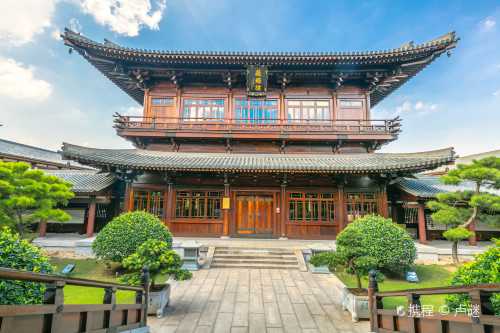Popular Trip Moments
Shanghai! Wukang Road! A small villa! So stylish! | A Journey Like a Song ~ A Guide to Getting a Bracelet at the Jade Buddha Temple | A Musical Journey to Jade Buddha Temple for Blessings and Beads | Took my parents to Shanghai 5 times... and locked in this affordable hotel | Chenshan Botanical Garden: A Romantic Spring Wonderland | CPC Second Congress Memorial: Relive the Red Memories | Three Pagodas of Dali | Travel through millennia with the historical stories of the China Art Museum in Shanghai | Romantic ceilings for Valentine’s Day! These 4 hotels are extinct | City Walk to the Most Beautiful Library | Lesser-known temples in Shanghai|A quiet and healing corner away from the crowds! | Yangshupu Power Plant: Unlock a century-old industrial "time capsule" in Shanghai! | Two Jewelry Exhibitions: Awakening at the Shanghai History Museum & Bulgari Serpenti | A Great Place for Locals - Street Library | A song brings you to a city, reliving Chekhov's century-old masterpiece | You have to visit Shanghai at least once! It is truly an international metropolis! | 2.10 Real shot! The romantic sea of flowers in North Bund is so beautiful | Unmissable Highlights for a Family Trip to Shanghai | Shanghai Disneyland | Winter Favorite Hot Pot: Free Meat and Seafood Exchange with Rich Buffet! | There is a reason why modern women love sound therapy with singing bowls! | Red Brick Memory - Hengyuan·Xinguangli | 1 Day Itinerary in Shanghai | Exhibition in Shanghai | Enjoy the endless charm of Cartier | Greek Exhibition in a Western-style House in Shanghai | Free Art Exhibition at Yuyuan Road's New Art Space | This is how you do luxury hotels right. Every photo is a masterpiece! | Jin Jiang Hotel Shanghai Hongqiao | New Year's Eve | Laobaidu Riverside Green Space | Unmissable Shanghai attraction: Liuli China Museum, a feast for the eyes!
Popular Travel Types
Recommended Attractions at Popular Destinations
Bangkok attraction near me | Manila attraction near me | Tokyo attraction near me | Taipei attraction near me | Hong Kong attraction near me | Seoul attraction near me | Kuala Lumpur attraction near me | Los Angeles attraction near me | Shanghai attraction near me | New York attraction near me | Shenzhen attraction near me | Osaka attraction near me | Singapore attraction near me | London attraction near me | Guangzhou attraction near me | San Francisco attraction near me | Beijing attraction near me | Macau attraction near me | Bali attraction near me | Jakarta attraction near me | Paris attraction near me | Ho Chi Minh City attraction near me | Istanbul attraction near me | Phuket attraction near me | Chicago attraction near me | Seattle attraction near me | Toronto attraction near me | Orlando attraction near me | Cebu attraction near me | Chiang Mai attraction near me
Popular Attractions
The Star, Sydney | Grandview Mall | Government Gardens | Cuba Street | Phi Phi Islands | Zhangye Colorful Danxia Scenic Spot | Deer Park Heights Queenstown | KL Hop-On Hop-Off | Wellington Cable Car | ZORB™ Rotorua | Obelisco | VinWonders Phu Quoc | Boracay | Universal Studios Hollywood | Black Diamond Swing Club | Dawenkou Ruins | Dai Temple | Wushan Tianfeng Scenic Area | City Sightseeing Hue | Barru/ Bølge/ Wave Sculpture | Temple | Mushola Al Amin | Almond Legion Hall | Muzey Derevyannykh Figur | KC Hillcrest Hotel and Golf Club | Park | Frisbeegolf Arboretum parkkipaikka | 二ツ岩 | Stadion | Natural kurdus waterfall, Alibaug
Popular Restaurants in Shanghai
SHUN JI | Jin Xuan Chinese Restaurant | WangBaoHe Restaurant | Ultraviolet by Paul Pairet | Yong Fu (Huangpu) | Fu He Hui | PHÉNIX | IL RISTORANTE - NIKO ROMITO | The Cathay Room | LE COMPTOIR DE PIERRE GAGNAIRE | Fu 1015 | Maison Lameloise SHANGHAI | Fu 1039 | Ren He Guan (Zhaojiabang Road) | Kurogi | The 1515 West, Chophouse & Bar | The Kitchen Table | Mercato by Jean-Georges | 上海中心J酒店·弋酒廊Yi Lounge | 上海中心J酒店·锦筵 | BaBBo | Obscura | Dining Room | Shang-Xi @ Regent Hotel Pudong | Amazing Chinese Cuisine | NAN XING YUAN | Taian Table | THE HOUSE OF RONG | Ji Pin Court | Ming Court
Popular Ranked Lists
Top 4 Premium Hotels in Phan Thiet | Popular Luxury Hotels in Jodhpur | Top 6 Best Things to Do in Xilingol League | Popular Luxury Hotels Near Saint Peter Port | Top 4 Best Things to Do in Shaoguan | Popular Best Things to Do in Ghajnsielem | Popular Premium Hotels in Sao Victor | Popular Luxury Hotels Near Yeosu | Popular Luxury Hotels Near Kaluga | Popular Luxury Hotels Near Dubrovnik | Popular Local Restaurants in Paris | Popular Luxury Hotels Near Castiadas | Popular Luxury Hotels in Kiawah Island | Top 6 Best Things to Do in Jincheng | Top 10 Local Restaurants in Sao Paulo | Popular Premium Hotels in Taunggyi | Popular Luxury Hotels Near Salamanca | Popular Best Things to Do in Guang'an | Popular Luxury Hotels Near Gurugram | Top 10 Local Restaurants in Cebu | Top 3 Best Things to Do in Heihe | Top 4 Best Things to Do in Haibei | Top 20 Local Restaurants in London | Top 4 Best Things to Do in Changde | Top 9 Local Restaurants in Zigong | Popular Premium Hotels in East Lothian | Top 10 Local Restaurants in Yueyang | Popular Luxury Hotels Near Herzliya | Popular Premium Hotels in Hervey Bay | Popular Premium Hotels in Sale
Payment Methods
Our Partners
Copyright © 2025 Trip.com Travel Singapore Pte. Ltd. All rights reserved
Site Operator: Trip.com Travel Singapore Pte. Ltd.
Site Operator: Trip.com Travel Singapore Pte. Ltd.
















